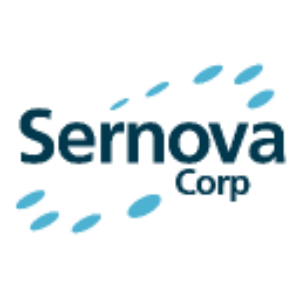Sernova Announces New Positive Data from Phase I/II Trial Regarding Islet Survival and Function
Rhea-AI Summary
Sernova Corp. (TSX:SVA) (OTCQB:SEOVF) has announced positive interim data from its ongoing Phase I/II clinical trial of the Cell Pouch Transplant System for type 1 diabetes (T1D). The trial shows sustained insulin independence in all 6 patients of Cohort A after islet transplantation. Notably, histological data from a patient's explanted Cell Pouch after 5+ years revealed abundant, well-vascularized, functioning islets producing insulin, glucagon, and somatostatin. The Cell Pouch demonstrated no evidence of fibrosis or degradation after long-term implantation. Sernova plans to complete Cohort B soon and initiate Cohort C with an optimized immune suppression regimen. The company is also developing iPSC-derived islet-like clusters with partner Evotec for a scalable cell source.
Positive
- All 6 patients in Cohort A achieved sustained insulin independence
- First patient maintained insulin independence for over 4 years with HbA1c ≤6.5%
- Histological data shows abundant, well-vascularized, functioning islets after 5+ years
- No evidence of fibrosis or degradation in Cell Pouch after 5+ years
- Cell Pouch provides full retrievability using conventional methods
- Advancing to Cohort C with optimized immune suppression regimen
- Developing iPSC-derived islet-like clusters for scalable cell source
Negative
- One patient had to stop immune suppression due to unrelated health issues
News Market Reaction
On the day this news was published, SEOVF declined 9.69%, reflecting a notable negative market reaction.
Data tracked by StockTitan Argus on the day of publication.
- Abundant, richly vascularized and functioning islets observed throughout all chambers of Sernova’s Cell Pouch more than 5 years after islet transplantation
- Histological data confirmation of healthy beta, alpha and delta cells secreting insulin, glucagon, and somatostatin in all Cell Pouch Chambers
- Sernova’s Cell Pouch safely contains its therapeutic cells and provides full retrievability using conventional instruments and methods
- Pathology confirmed no evidence of detrimental fibrotic tissue associated with Cell Pouch more than 5 years after implantation
LONDON, Ontario and BOSTON, Sept. 12, 2024 (GLOBE NEWSWIRE) -- Sernova Corp. (TSX:SVA) (OTCQB:SEOVF) (FSE/XETRA:PSH), a clinical-stage biotechnology company focused on the development of regenerative medicine cell therapies for treatment of chronic diseases today announced the presentation of new positive interim data from the ongoing Phase I/II clinical trial evaluating the safety, tolerability, and efficacy of the Sernova Cell Pouch Transplant System containing donor islets in people living with type 1 diabetes (T1D).
The data was presented by Piotr Witkowski, M.D., Ph.D., Professor of Surgery and Director of the Pancreatic and Islet Transplant Program at University of Chicago Medicine, who is the Lead Investigator for the study, during an oral session at the 2024 European Association for the Study of Diabetes (EASD) Annual Meeting in Madrid, Spain.
All 6 of the patients enrolled in Cohort A of Sernova’s Phase I/II clinical trial with Cell Pouch and donor islets achieved sustained insulin independence after combined islet transplantation into Cell Pouch and intraportally. The first patient to be treated in the trial experienced sustained insulin independence for more than 4 years accompanied by blood sugar levels in the non-diabetic range (HbA1c ≤
The new histological data from those explanted Cell Pouches confirmed abundant, well-vascularized, functioning islets consisting of cells producing insulin, glucagon and somatostatin, throughout all chambers, more than 5 years after being transplanted to Cell Pouch. Additionally, after being in the body for more than 5 years, a pathology examination confirmed there was no evidence of detrimental fibrotic tissue, material degradation or changes in the architecture of the Sernova Cell Pouch.
“I am excited to see this evidence of well-vascularized and healthy islets 5 years after transplant to Sernova’s Cell Pouch; these interim findings are very promising,” commented Piotr Witkowski M.D., Ph.D. “This is a major step forward in the development of a contained and retrievable cell therapy for the treatment of T1D. This is the first evidence that I am aware of that demonstrates this level of healthy islet survival and function in an implantable and retrievable system for such a long duration.”
“We believe this first-in-world data is significant for Sernova and, more specifically, provides tangible hope for T1D patients that we are a significant step further in our mission of providing a functional cure for this terrible disease; as a Type 1 diabetic myself I could not be more determined to drive our program forward and ultimately onto the market,” said Jonathan Rigby, President and CEO of Sernova. “We look forward to completing Cohort B in the near term and, based on positive data generated thus far, initiating Cohort C of our ongoing trial later this year with an optimized immune suppression regimen. Lastly, we continue to work with our partner Evotec on the development of induced pluripotent stem cell (iPSC)-derived islet-like clusters, which will provide a scalable cell source so that one day we can give patients with T1D their lives back.”
ABOUT THE PHASE I/II TRIAL
The Phase I/II trial (NCT03513939) is a U.S. prospective, single-arm, multi-cohort study evaluating the safety, tolerability, and efficacy of Sernova’s Cell Pouch in combination with transplanted human-donor islets in people living with type 1 diabetes (T1D). The trial includes participants aged 18-65 with T1D who experience hypoglycemic unawareness and severe hypoglycemic episodes, and who are eligible for donor islet transplantation. The trial is currently divided into two cohorts. Cohort A involved six patients who received the first-generation 8-channel Cell Pouch. Cohort B is evaluating seven patients transplanted with an optimized 10-channel Cell Pouch, which has a
ABOUT SERNOVA AND ITS CELL POUCH™ TRANSPLANT SYSTEM PLATFORM FOR CELL THERAPY
Sernova Corp. is a clinical-stage biotechnology company that is developing therapeutic cell technologies for chronic diseases, including insulin-dependent diabetes, thyroid disease, and blood disorders that include hemophilia A. Sernova is currently focused on developing a ‘functional cure’ for insulin-dependent diabetes with its lead technology, the Cell Pouch Transplant System, a novel implantable and scalable medical device with immune protected therapeutic cells.
On implantation, The Cell Pouch forms a natural, vascularized tissue environment in the body allowing long-term survival and function of therapeutic cells that release essential factors that are absent or deficient in patients with certain chronic diseases. Sernova’s Cell Pouch Transplant System has demonstrated its potential to be a ‘functional cure’ for people with T1D in an ongoing Phase I/II clinical study at the University of Chicago.
Sernova partnered with Evotec to develop an implantable off-the-shelf iPSC (induced pluripotent stem cells) based islet replacement therapy. This partnership provides Sernova a potentially unlimited supply of insulin-producing cells to treat millions of patients with insulin-dependent diabetes (type 1 and type 2). Sernova’s development pipeline that uses its Cell Pouch Transplant System also includes: a cell therapy for hypothyroid disease resulting from thyroid gland removal and an ex vivo lentiviral Factor VIII gene therapy for hemophilia A.
FOR FURTHER INFORMATION, PLEASE CONTACT:
Christopher Barnes
VP, Investor Relations
Sernova Corp.
Tel: +1 519-902-7923
Email: christopher.barnes@sernova.com
Website: www.sernova.com
The TSX has not reviewed this news release and does not accept responsibility for the accuracy or adequacy of this news release.
FORWARD-LOOKING INFORMATION
This release contains statements that, to the extent they are not recitations of historical facts, may constitute “forward-looking statements” that involve various risks, uncertainties, and assumptions, including, without limitation, statements regarding the prospects, plans, and objectives of the company. Wherever possible, but not always, words such as "expects", "plans", "anticipates", "believes", "intends", "estimates", "projects", "potential for" and similar expressions, or that events or conditions "will", "would", "may", "could" or "should" occur are used to identify forward-looking statements. These statements reflect management’s beliefs with respect to future events and are based on information currently available to management on the date such statements were made. Many factors could cause Sernova’s actual results, performances or achievements to not be as anticipated, estimated or intended or to differ materially from those expressed or implied by the forward-looking statements contained in this news release. Such factors could include, but are not limited to, the company’s ability to secure additional financing and licensing arrangements on reasonable terms, or at all; ability to conduct all required preclinical and clinical studies for the company’s Cell Pouch System and or related technologies, including the timing and results of those trials; ability to obtain all necessary regulatory approvals, or on a timely basis; ability to in-license additional complementary technologies; ability to execute its business strategy and successfully compete in the market; and the inherent risks associated with the development of biotechnology combination products generally. Many of the factors are beyond our control, including those caused by, related to, or impacted by the novel coronavirus pandemic. Investors should consult the company’s quarterly and annual filings available on www.sedarplus.ca for additional information on risks and uncertainties relating to the forward-looking statements. Sernova expressly disclaims any intention or obligation to update or revise any forward-looking statements, whether as a result of new information, future events or otherwise.








